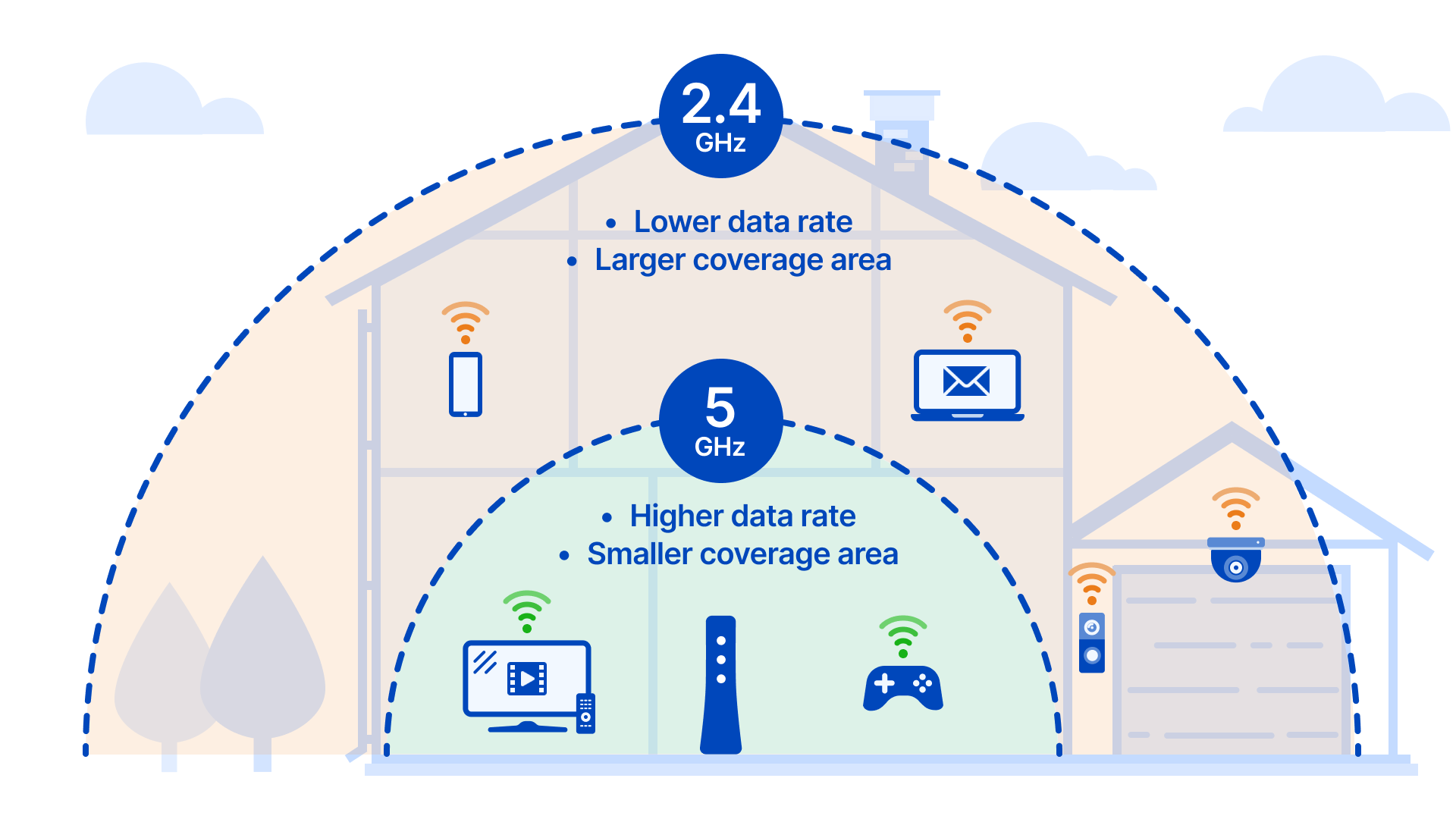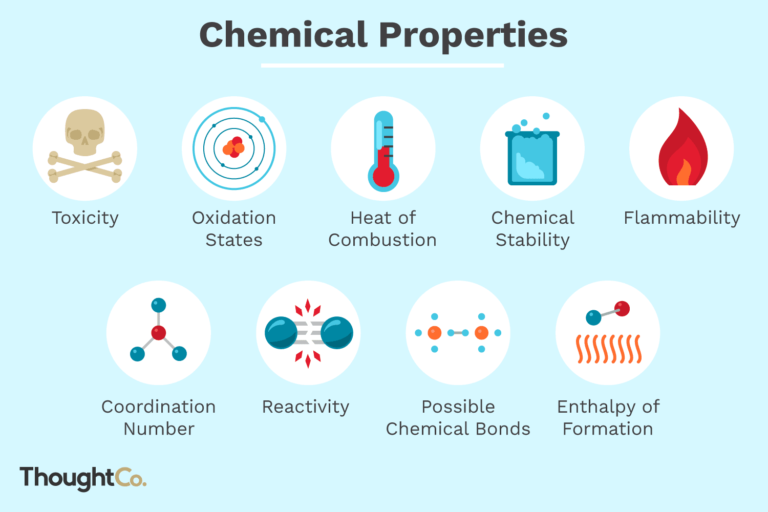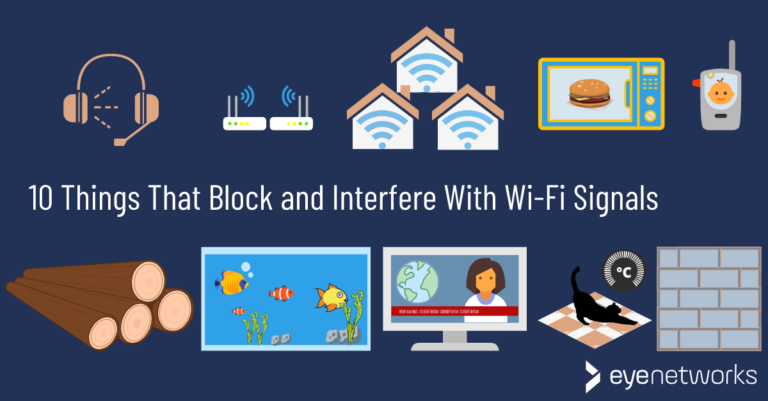Is 2.4 GHz Faster Than 5 GHz?
2.4 GHz and 5 GHz are two frequency bands commonly used for wireless networking. The 2.4 GHz band is typically used for most devices such as laptops, smartphones, tablets, and other wireless devices, while the 5 GHz band is usually used for faster, more reliable connections such as streaming or gaming. The answer to the question of whether 2.4 GHz is faster than 5 GHz depends on the specific application. Generally speaking, 5 GHz is typically faster than 2.4 GHz, offering shorter transmission ranges and faster data speeds. However, 2.4 GHz may be better for longer-range connections, as it can penetrate through obstacles easier. Ultimately, the best choice of frequency band for any given situation will depend on the individual requirements of the user.
4GHz and 5GHz Wireless Network Connections
: What’s the Difference?
Wireless networks are becoming increasingly popular due to their convenience, reliability, and performance. While there are many different types of wireless networks, two of the most common are 2.4GHz and 5GHz connections. But what is the difference between these two frequencies and which one is faster?
The 2.4GHz band is the most widely used frequency band used in wireless networking today. This frequency is able to reach longer distances than the 5GHz frequency and is better suited for larger homes and offices. However, the downside to this frequency is that it is more susceptible to interference from other wireless networks and devices, which can result in slower speeds and unreliable connections.
On the other hand, the 5GHz frequency offers faster speeds and is better suited for intensive activities such as streaming HD video and gaming. It also provides a more reliable connection due to its ability to avoid interference from other wireless networks and devices. The downside to this frequency is that its range is shorter than the 2.4GHz frequency, so it’s not ideal for large homes or offices.
So, is 2.4GHz faster than 5GHz? The answer is that it depends on your specific needs and environment. If you have a large home or office and need a reliable connection that can reach long distances, then the 2.4GHz frequency is the better option. However, if you need faster speeds for intensive activities such as streaming HD video or gaming, then the 5GHz frequency is the better choice.
4GHz and 5GHz Differ
in Speed and Benefit
The debate over which WiFi frequency is faster has been ongoing for years, and the answer isn’t as simple as “2.4 GHz is faster than 5 GHz”. While both frequencies have their advantages, it’s important to understand the differences and when one is better than the other. 2.4GHz is the most common WiFi frequency, and is better suited for large areas with multiple devices. It is capable of providing a more consistent, reliable connection, but is more prone to interference from other devices. On the other hand, the 5GHz frequency is newer and provides faster speeds with less interference. It’s ideal for streaming HD video, gaming, and other data-heavy activities, but may not have the range of the 2.4GHz frequency. Ultimately, both frequencies have their pros and cons, and it’s important to understand the differences and choose the one that best fits your needs.
4GHz Connections
vs 5GHz Connections
When it comes to wireless connectivity, there are two main frequencies you need to know about: 2.4GHz and 5GHz. While both are used to send and receive data over the air, they differ in terms of speed and range. 2.4GHz connections are slower than 5GHz connections, but they have a longer range. This makes them ideal for activities that require a more reliable connection over long distances, such as large-scale file transfers or streaming. On the other hand, 5GHz connections are faster and also more reliable over shorter distances. This makes them ideal for activities where speed is a priority, such as gaming or streaming HD video. But keep in mind that 5GHz connections are more susceptible to interference from other wireless devices and walls, so they can be less reliable over longer distances. Ultimately, the best type of connection for any given situation will depend on your specific needs.

Advantages of 5GHz Connections
Wireless technology has come a long way in recent years. As the world advances towards faster and more efficient Wi-Fi connections, the debate between 2.4GHz and 5GHz connections has become an important one. While 2.4GHz is the traditional frequency for Wi-Fi, 5GHz is now often seen as the new, better, faster option. So, what makes 5GHz connections so special?
For starters, 5GHz connections are less prone to interference than 2.4GHz connections. This is because 5GHz signals are more directional and can penetrate walls more easily than 2.4GHz signals. This means that 5GHz connections can offer higher speeds and better range than 2.4GHz connections, making them ideal for streaming and gaming. Additionally, 5GHz connections can handle more devices than 2.4GHz connections, meaning that larger households can benefit from faster, more reliable connections.
Finally, 5GHz connections are also more secure than 2.4GHz connections. This is because they are less prone to interference, which means that malicious actors have a harder time intercepting data being sent over 5GHz connections.
Overall, 5GHz connections offer a number of advantages over 2.4GHz connections. They are faster, more reliable, and more secure, making them the ideal option for those looking for the best possible Wi-Fi experience.
Disadvantages of 2
.4 GHz
When it comes to wireless networks, the debate of 2.4 GHz vs 5 GHz is ongoing. While 2.4 GHz typically has a longer range and is more widely available, 5 GHz is faster and has more bandwidth. However, both have their advantages and disadvantages. When it comes to the 2.4 GHz band, there are some disadvantages that can’t be overlooked.
Firstly, 2.4 GHz is more susceptible to interference, which can affect its speed and reliability. Because it has a longer range, it can also be more easily interrupted by other devices transmitting on the same frequency, such as cordless phones, microwaves, and Bluetooth devices. Additionally, the 2.4 GHz band is more crowded than the 5 GHz band, which can lead to slower speeds and a more congested network.
The 2.4 GHz band also has a shorter range than the 5 GHz band, so it may not be suitable for large homes or for those who need to connect devices over a longer distance. Finally, some newer devices are not compatible with 2.4 GHz networks, so if you have a mix of older and newer devices, 5 GHz may be the better option.
When it comes to choosing between 2.4 GHz and 5 GHz networks, it’s important to consider your needs and the advantages and disadvantages of each. Weighing the pros and cons can help you make an informed decision about which network is right for you.
Disadvantages of 5GHz Connections
When it comes to wireless networking, the 2.4GHz and 5GHz frequencies are a popular choice for many users. While both have their advantages, 5GHz connections can often come with some drawbacks. For starters, the range of a 5GHz connection is much shorter than that of a 2.4GHz connection. This means that if you are planning on using your wireless connection in a large house or office, you may find that the signal is not strong enough to reach all required areas. Additionally, 5GHz connections are more susceptible to interference from other electronics, such as microwaves, cordless phones, and Bluetooth devices. This can cause your connection to be unreliable or slow, depending on the amount of interference. Lastly, 5GHz connections are not as widely supported as 2.4GHz, meaning that many devices may not be compatible with them. It is important to ensure that all of your devices can connect to the 5GHz frequency before making the switch.
FAQs About the Is 2.4 GHz Faster Than 5 GHz?
Q1: What is the difference between 2.4 GHz and 5GHz?
A1: The main difference between 2.4 GHz and 5GHz is the frequency of the connection. The 2.4GHz frequency is a longer range and slower speed, while the 5GHz frequency is a shorter range and faster speed.
Q2: Is 2.4 GHz faster than 5 GHz?
A2: Generally, 5GHz is faster than 2.4GHz. However, the actual speed depends on the distance from the router and the number of devices connected to the network.
Q3: What kind of devices should use the 2.4GHz frequency?
A3: The 2.4GHz frequency is more suitable for devices that require a longer range connection, such as a laptop or smart TV. It is also better for devices that require less data, such as a printer or a streaming device.
Conclusion
In conclusion, 2.4 GHz is the slower frequency when compared to 5 GHz. However, 2.4 GHz does have the advantage of providing a greater range compared to 5 GHz. Despite the slower speeds, 2.4 GHz is still a suitable option for many wireless applications.



